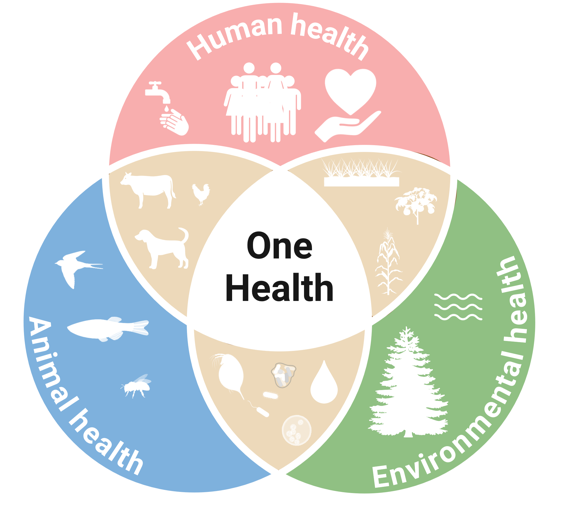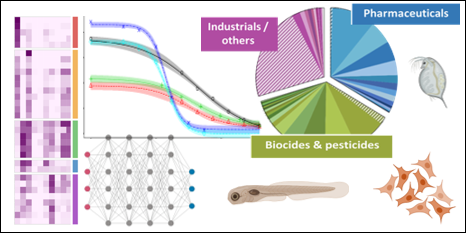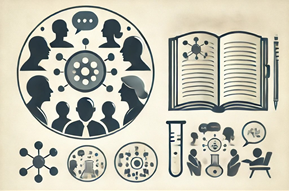Research
Our research comprises of the following overarching topics and approaches and is organized in five working groups. With our projects and our interdisciplinary and international team we develop experimental systems and methods and software for more effective strategies for predicting and preventing the risks of chemical exposures to human and ecosystem health.
Overarching Topics and Approaches
Hazard Identification and Risk Assessment of Chemicals within a One Health Context
- Development and application of innovative experimental and computational methods in toxicology with relevance for human and ecosystem health
- Identification, quantification and assessment of chemical hazards of individual chemicals, chemical mixtures, and other combinations of stressors

Diagnoses, Mechanisms, and Predictions of Toxicity
- Investigations of exposure-effect relationships from the molecular to the community level for freshwater aquatic ecosystems and organisms
- High-throughput measurements with zebrafish embryo and cellular systems and digital workflows for data management, analyses, and modelling
- For: the derivation of threshold levels, the recognition of effect patterns, and the understanding of modes of action

Science Communication and Consulting
- Transfer of knowledge on material and chemical safety to the general public via websites, press (print, radio, TV) and social media
- Targeted transfer to stakeholders in politics and regulation through national and international committee work, workshops, participation in conferences and information events
- Communication with schoolchildren, citizens and consumers in science dialogue formats such as long science nights, film talks and workshops

